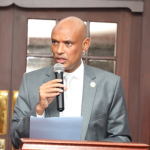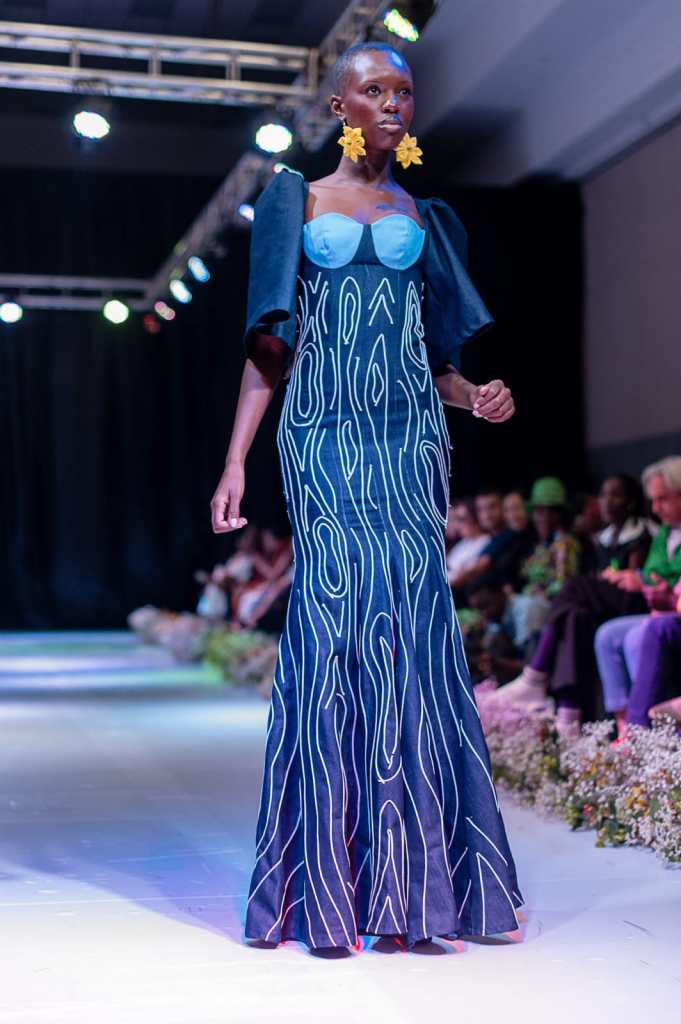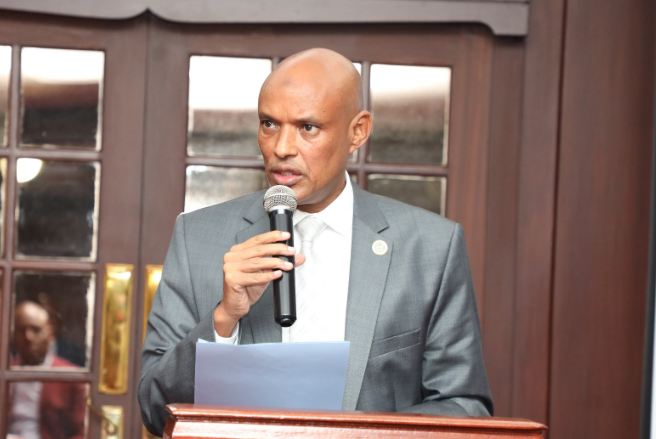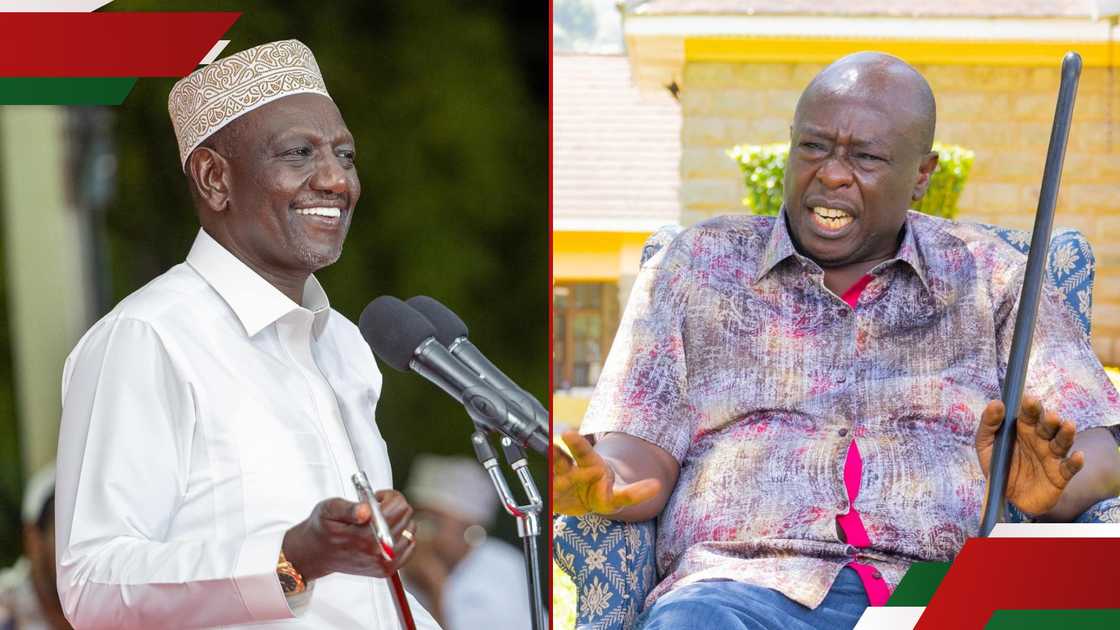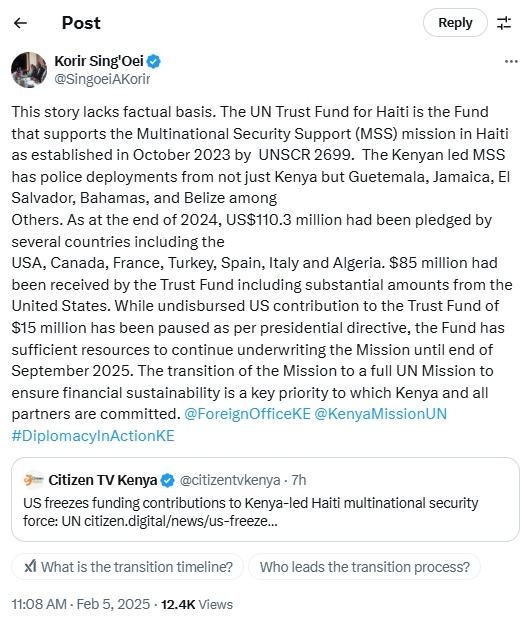Season seven of Nairobi Fashion Week 2025 marked another significant milestone in the evolution of Kenya’s fashion industry.
This year’s event highlighted the incredible work of Kenyan and African designers who showcased their innovative designs while promoting sustainable practices in fashion.
Nairobi Fashion Week 2025 brought together established designers from Kenya, the African continent, and beyond, who are redefining fashion through sustainability.
The event featured innovative collections that embraced eco-friendly materials, upcycled fabrics, and cutting-edge techniques in circular fashion.
The showcasing of these sustainable designs highlighted the growing movement in Africa toward fashion that is not only stylish but also mindful of its environmental impact.
The designers’ creativity shone through as they used recycled textiles, plant-based fabrics, and organic dyes, demonstrating that fashion can be both luxurious and eco-conscious.
By celebrating sustainable innovation, the event offered a glimpse into the future of fashion, where the industry’s environmental footprint is minimized without compromising on style.
Among the highlights of this year’s runway were:-
– LaOculta, a womenswear brand rooted in both Kenya and Colombia.
– Sokolata, a high-end and eco-responsible ready-to-wear brand created in 2022 by Sikoti Mbaitjongue from Senegal. The brand uses natural materials of African origin in their creations, including organic Senegalese cotton, raw cotton from Benin as well as various West African fabrics traditionally woven by hand.
– Jewellery and accessories brand Apar Gadek added her unique flair to the event.
– Maisha By Nisria, a non-profit fashion and design studio based in Nakuru, Kenya. Known for its unique, handmade clothing, specialises in upcycling and creative reuse, transforming discarded textiles into contemporary handmade pieces that stand out for their innovation.

Another highlight from the event, was the return to the runway of Kenyan womenswear designer Eva Wambutu after her impressive debut at the previous Nairobi Fashion Week (Season 6).
Speaking about Season 7, she said sustainable fashion emphasised the need for a green industry.
“Events like these create visibility and spark conversations about sustainability, pushing the industry toward more responsible practices.
“They highlight the importance of sustainable fashion, connect designers with resources, and encourage innovation.
“Beyond environmental conservation, they emphasize the need for a thriving green industry that supports creativity, business growth, and long-term change.”

The founder of Afro Wema, Tatiana Teixera who also showcased at the event said it was an opportunity to educate both consumers and stakeholders.
“Events like fashion weeks and industry exhibitions play a crucial role in aligning the industry with sustainability.
“They create spaces where brands can showcase eco-conscious innovations, foster collaborations, and educate both consumers and stakeholders about responsible fashion.
“These events also amplify the conversation around ethical sourcing, waste reduction, and circular fashion, pushing the industry towards more sustainable practices.”
The impact of Kenyan policies on the textile industry

The event also served as a powerful platform for crucial discussions on textile circularity, recycling, and the impact of both national and global policies on the future of the textile industry in Kenya and beyond.
With the global textile industry being one of the biggest polluters, Nairobi Fashion Week 2025 emphasised the importance of shifting from a linear model of production to a more circular approach, which encourages the reuse, upcycling, and recycling of materials to extend the life of garments.
The event provided a unique platform for industry leaders, designers, and environmentalists to discuss how Kenya’s textile industry can contribute to global sustainability efforts.
The discussions underscored the need for greater policy coherence between national and global regulations to facilitate a more sustainable and circular textile industry.
Stakeholders at the event highlighted the importance of collaboration between governments, industry leaders, and environmental organizations to create policies that support sustainable fashion and encourage responsible production practices.
“Kenya’s textile industry holds immense potential to thrive on the global stage, but achieving this requires a seamless integration of national policies with international expectations.
“From sustainability certifications to technological advancements and trade agreements, we need a cohesive strategy that empowers local producers while ensuring they can compete globally,” said professor Josphat Idagwa an associate professor of Textile Engineering at Moi University during the panel discussion at the event.
A key takeaway from Nairobi Fashion Week 2025 was the collective recognition that fashion can serve as a powerful tool for policy advocacy and social change.
The fashion industry’s influence was showcased in the way designers used their platforms to not only present beautiful creations but also to send strong messages about environmental responsibility and sustainable production.
The event provided a dynamic environment for creating policy dialogues and advocating for systems change within the textile sector.
“This year’s event was a testament to the power of fashion to drive change,” said Brian Kihindas, Creative Director Nairobi Fashion Week.
“By bringing together designers, environmental advocates, and policymakers, we’ve created a space for meaningful discussions about how the fashion industry can be part of the solution to the global environmental crisis.
“We are excited to continue this journey toward sustainable fashion and look forward to seeing the impact of these conversations on the future of the industry.”


